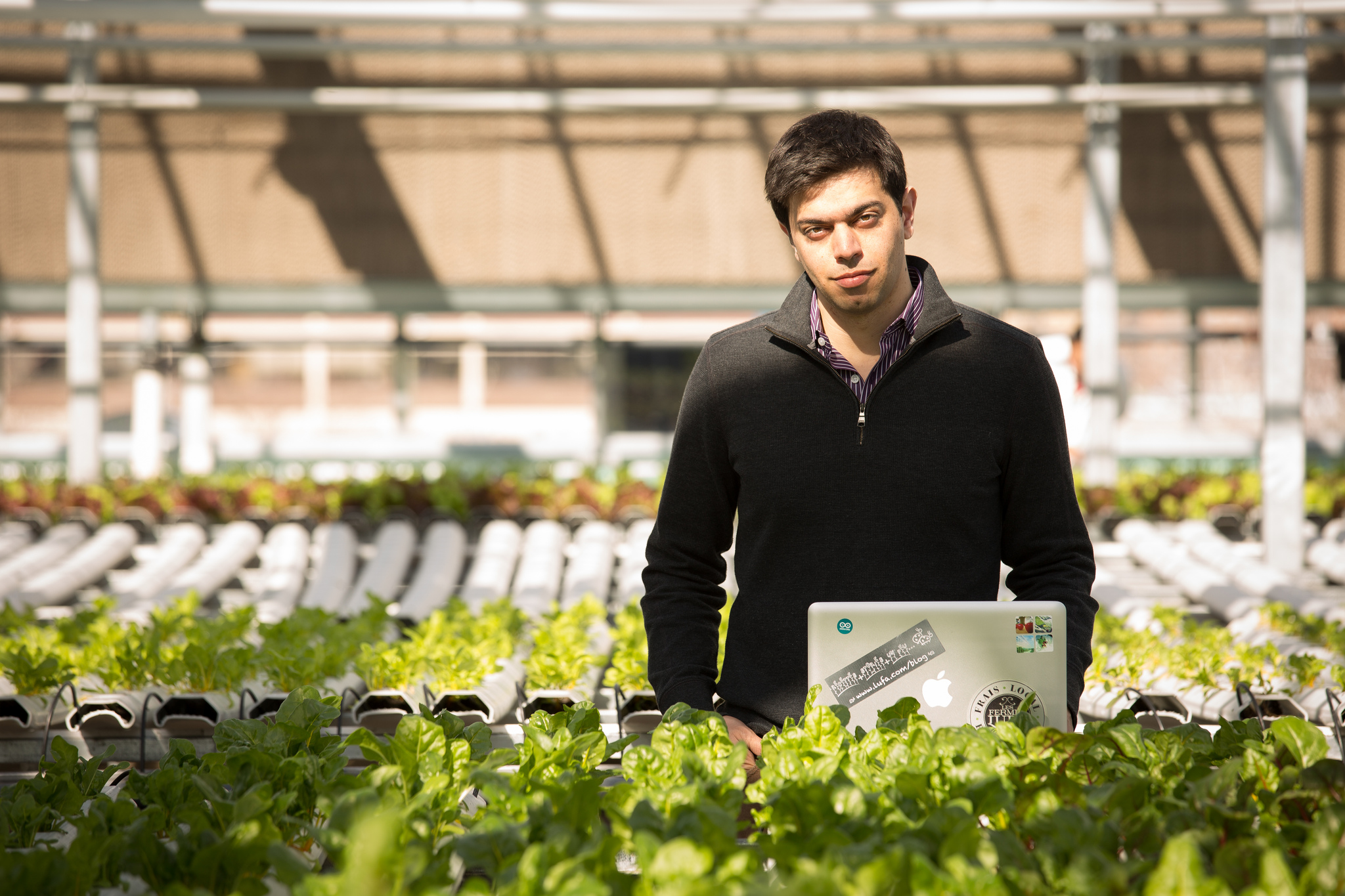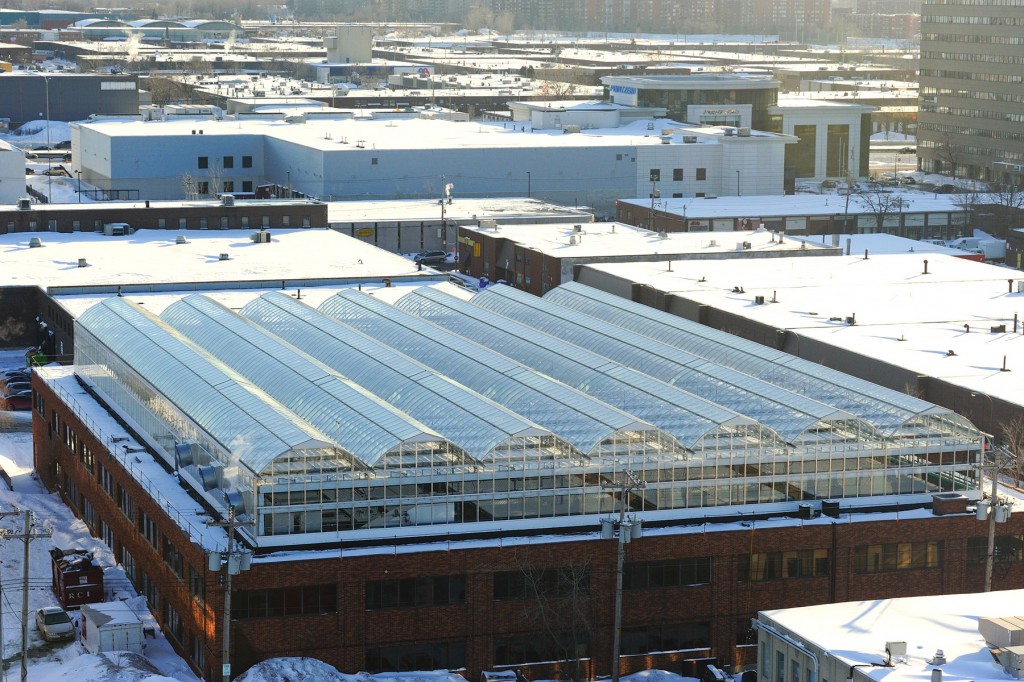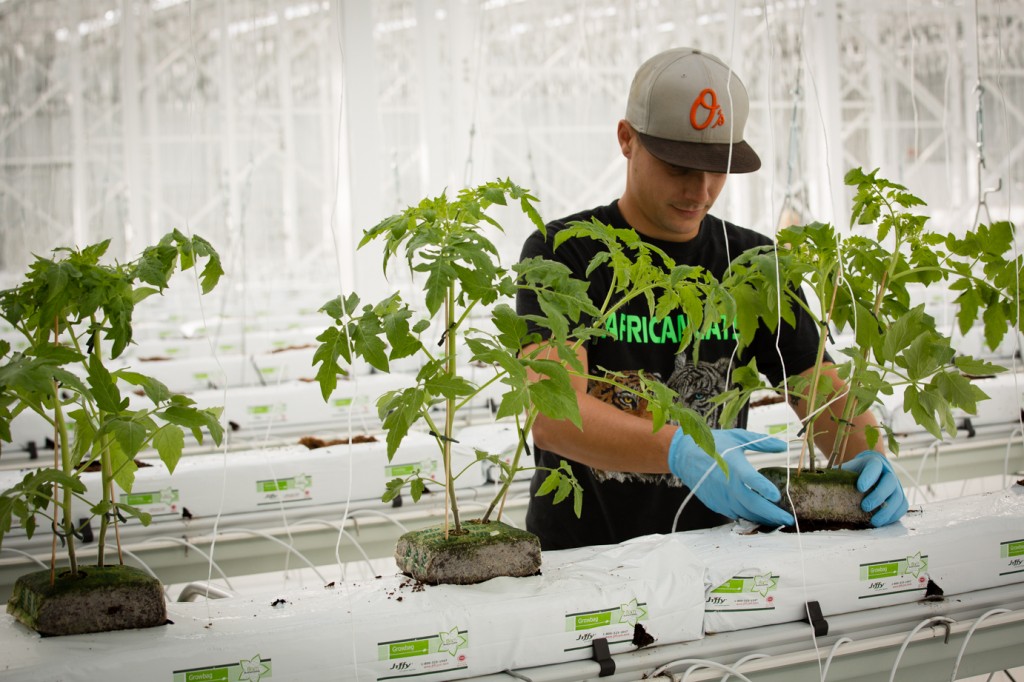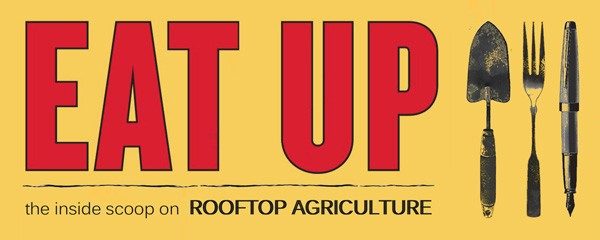putting your money where the mouths are

Lufa Farms founder + CEO Mohamed Hage || photo by Lufa Farms
“Imagine cities that feed their own inhabitants. Imagine communities that are connected by farms. Imagine knowing your farmer and knowing your food.” This is the vision of Mohamed Hage, founder and CEO of the Montreal-based rooftop farming company Lufa Farms, articulated during his 2012 TEDx Talk. Hage is a pioneer in the rooftop farming industry, pushing the limits of skyline hydroponics to cultivate as much food as possible directly in the heart of cities. What’s his secret? Unparalleled business sense.

0.7-acre Ahuntsic location || photo by Lufa Farms
Lufa Farms grows roof-fresh produce in two locations: a 32,000 square foot (0.7 acre) greenhouse in Montreal’s Ahuntsic neighborhood and a 43,000 (1.0 acre) greenhouse in neighboring Laval, Quebec. The farms opened for business in 2011 and 2013, respectively, after several years of planning and development. Hage partnered with several hotshots to create the company’s leadership team. Each brings a unique suite of skills to the table, thereby fostering a robust group of leaders. Lauren Rathmell, a trained biochemist, serves as Lufa Farm’s greenhouse director; Yahya Badran, owner of a construction company, is the director of engineering; and Kurt Lynn, a local entrepreneur, serves as the company’s advisor. Together with Hage the team has successfully grown Lufa Farms to feed approximately 6,500 Québécois year-round through a distribution model akin to a CSA (community supported agriculture) crossed with online shopping. The business has been so successful, in fact, that Hage is evaluating new farm locations within Quebec, Ontario and the northeastern U.S.
Financing a commercial-scale, hydroponic rooftop farm is not cheap. Ventures such as Hage’s may cost upwards of $70 per square foot to construct, putting the price tag for one farm in the millions. Investing in this scale of business means that for starers, each farm must be located near potential customers (thus is born the pun, “putting your money where the mouths are”). After selecting these hyper-local locations, Lufa Farms takes the next step by securing subscribers, or customers who buy 12-weeks of farm-fresh groceries delivered weekly to drop-off points. Operating under a subscription model is a slick business move on Hage’s part; one that provides a more accurate prediction of revenue compared to a farm that relies upon single purchases and is subject to market price fluctuations.

Hydroponic tomato farming || photo by Lufa Farms
Another key to Lufa Farms’ success is the company’s effective use of technology. From programming each greenhouse’s micro-climates to innovating iPad apps for the farmers and creating an online Marketplace for customers, Lufa Farms is dialed in to the tech world. This successful integration comes as no surprise, as Hage, is a self-described “technology geek” according to a 2013 interview. Before delving into the creation of Lufa Farms, Hage founded Cypra Media, which is now a major email service provider in Canada.
Lufa Farms’ success serves as a shining example of healthy farming practices combined with business know-how. Lufa Farms also reminds us that our own farming businesses cannot be sustainable for the long-term without satisfying the triple bottom line: people, planet and profit.
 EAT UP
EAT UP